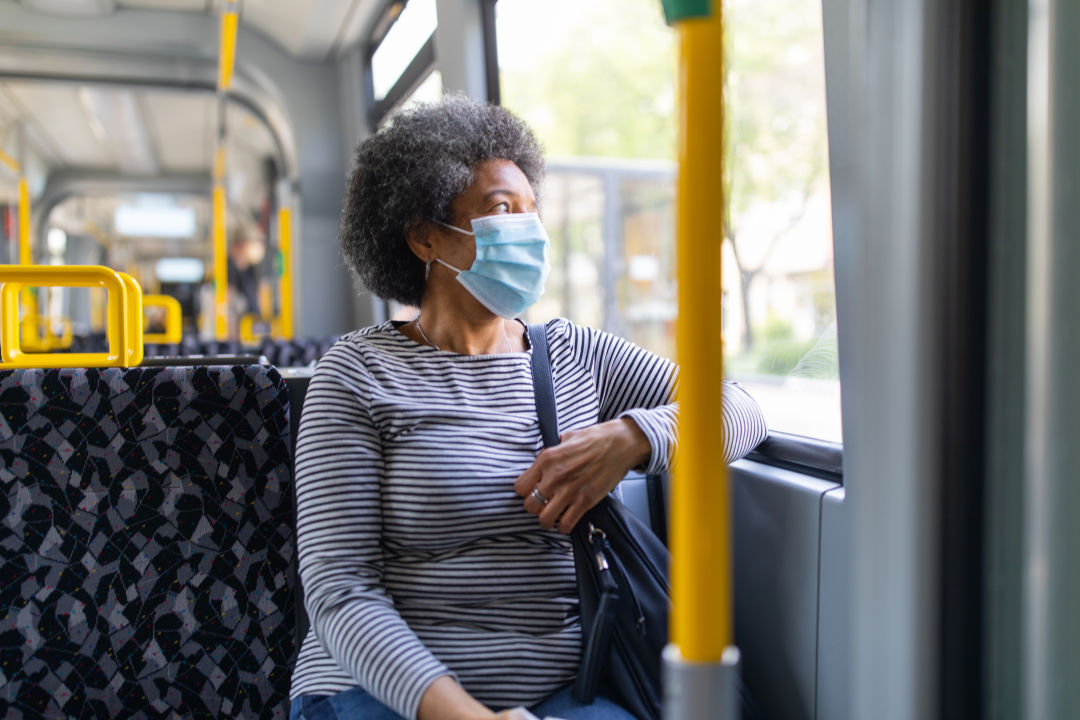Dealing with Post-Pandemic Anxiety

Thanks in large part to COVID-19 vaccinations, Oregonians now have the opportunity to emerge from a locked-down, mask-wearing, grocery-washing, hand-sanitizing world into, well, something else. Not the same as before the pandemic. Something different. Something yet unknown.
For many, the mere thought of leaving home and dipping a toe back into the world brings on feelings of uncertainty, even after our government officials have “opened up” the state. Should I wear a mask? Will others wear one? How often should I wash my hands? Is it safe to go to a restaurant, gym, or mall? Should I ride the bus? Will people hug, fist-bump, or share a kiss?
According to Christine Finucane, a 30-year Kaiser Permanente licensed clinical social worker and addiction medicine counselor, it’s those endless unknowns that tend to support or sink a successful re-entry. “This is a new experience for every single person on the planet,” she says.
As survivors, we have all suffered and grieved during the pandemic, whether or not a loved one has died. COVID-19 has affected us deeply, which means we will continue to react to it as we slowly emerge from the uncertainty of the past 16 months.
Finucane offers the following tips for re-entry, whether you are slightly uneasy about rejoining the world or you are particularly stressed by the prospect of re-entry.
What would cause people to feel uncertain about re-entry?
This is a new time. We’ve never done this before. New experiences — especially new challenges — are fraught with unknowns, and unknowns tend to make us anxious. It’s normal to have anxious feelings when our lives change as dramatically as they have.
How can people make re-entry easier?
Give yourself time. Ease into it, especially if you have been fully isolated. Start out by visiting small venues. Take breaks from social interaction, then try again.
Accept your feelings and do your best to cope. Talking about your feelings with others can be really helpful and will reinforce that you are not alone. Think about how you want your post-COVID life to look. Try expressing yourself in a journal so you can reflect back on it and see your progress.
You may also find relief by downloading a meditation and mindfulness app, which can help increase focus, relieve stress, and promote better sleep.
What else can people do?
Ask yourself what helped you stay resilient during the past 16 months. If you took up a hobby, keep it going. Whether it’s gardening, baking bread, or knitting, look for ways to incorporate those activities into your “new” life. Focus on moving away from “surviving” to “thriving.”
Avoid excessive consumption of alcohol and drugs. Simply put: They won’t help.
If you find that re-entry isn’t working for you and it’s interfering with your life — for example, you can’t sleep, you can’t work, and you have little or no energy — seek the help of a licensed clinical therapist.
At Kaiser Permanente, we offer patients in-person and virtual appointments. Members in Oregon and Southwest Washington may call for advice (503-294-3434) or reach a 24-hour crisis line (503-331-6425).
For more tools on how to help yourself or a loved one who may be in need of mental health support during this time, visit FindYourWords.org.
